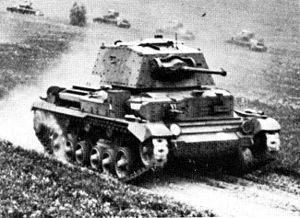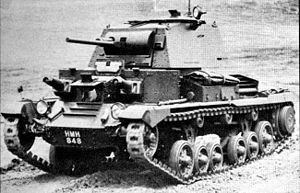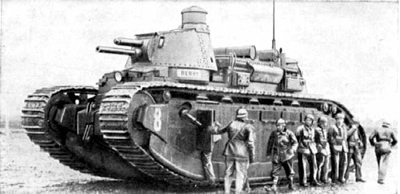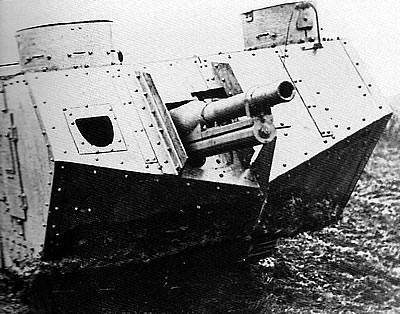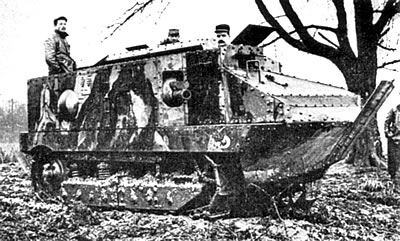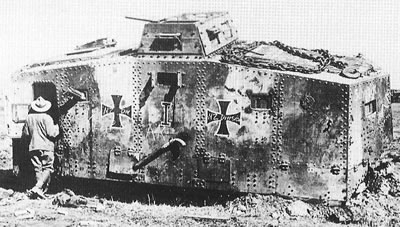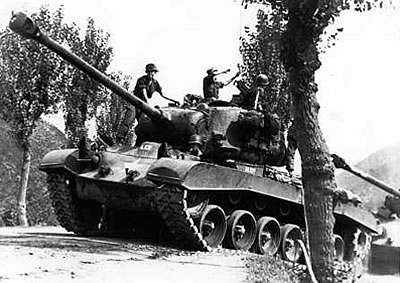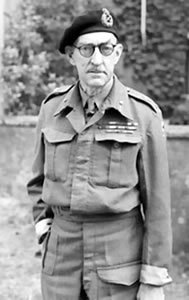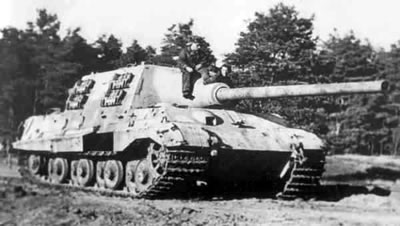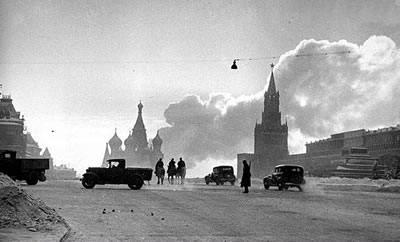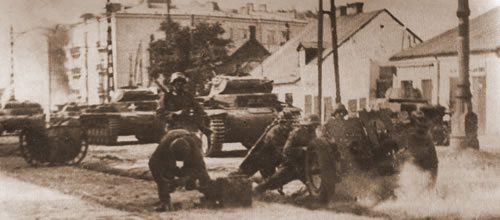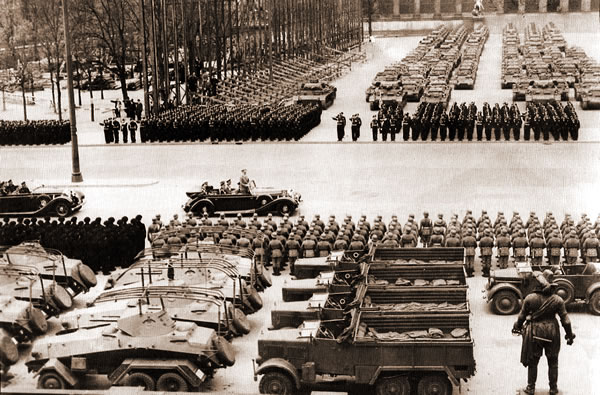The A10 was designed by the same person who created the A9, Sir John Carden, and sported a number of similar features. Like many early WWII tanks of Britain, it was a bit slapdash in its build quality. For instance, it had the same turret and hull design of its predecessor only it had the …
Author Archives: M Malory
A9 Cruiser Tank Mark I
The cruiser tank was developed out of a need for an intermediate vehicle between heavy and light. The light tanks were too weak and the heavy tanks were too slow. The A9 was the first of the cruiser tanks, developed by Britain, and put into active service in 1938. Sir John Garden designed the tank …
Char 2C Heavy Tank
As tanks developed during World War One the need arose for heavy tanks to break through enemy defenses and the first successful French tank built with these specifications in mind was the Char de Rupture C (eng. Breakthrough Tank C). This tank had two predecessor prototypes built between 1917 and 1918, the 1A and 1B, …
Saint Chamond Heavy Tank
The Saint Chamond, named after the place it was made, was France’s second heavy tank of World War One. The original idea for a second tank was supposed to be based on the original Schneider CA1, but the designer of that tank, Eugene Brille, would not let Colonel Rimailho of Compagnie des forges et aciéries …
Char d’Assaut Schneider CA1 Heavy Tank
The Char d’Assaut (Assault Tank) Schneider CA1 was France’s first production tank and, like the first tanks of other countries, it was a basic box shape on top of an American tractor, in this case the popular Holt. Still, despite being a basic box, this French tank does show a little more grace in its …
A7V Sturmpanzer-Kraftwagen
The A7V Sturmpanzer-Kraftwagen was the only tank made by Germany, then the German Empire, during WWI. 100 of them were ordered, but only 25 were actually built. The German authorities at the time could not see the usefulness of the tank, and by the time they did realize it was already too late. This tank …
Tanks at the End of World War Two
A great rush of speed was undertaken after the allies had crossed the Rhine, striking swiftly into German territory with the lighter medium tanks of America and the cruiser tanks of Britain. German tanks were still superior in quality by the last days or World War Two, and even put up fierce resistance in some …
Specialist Allied Invasion Tanks, Hobart’s Funnies
The D-Day landings of mainland Europe on June 6, 1944 involved the most extensive wartime planning, with the most men and equipment, the world had ever seen. Over five thousand ships carried troops across the English Channel to Normandy, while eight hundred planes dropped thirteen thousand paratroopers who were the advanced attack force. A further …
Continue reading “Specialist Allied Invasion Tanks, Hobart’s Funnies”
Tank Development in World War Two
Tanks developed much more rapidly in World War II than any time before, with all the major tank building countries designing and making bigger, faster, better armored tanks as the war progresses. The UK had been the leader in cutting edge tank technology in World War One, but by the outbreak of World War Two …
Tanks in Snow, Desert and Jungle in WWII
During World War Two, especially in the period when Hitler had almost total control over Europe before D-Day, the tank proved itself capable in some of the most unlikely places on Earth. After being victorious in Europe, Hitler decided to turn on his Russian allies and invade their country in a campaign named Operation Barbarossa …
German Panzer Heydays of World War Two
Two German Army Groups sped across the borders of Poland on September 1st 1939. Leading the assault that began the Second World War were two Panzer Groups engaged in trapping and destroying the Polish Army in a massive pincer formation. The Germans were aware that the Polish would be hard to beat psychologically, emboldened by …
Tank Development Between The Two World Wars
During World War I British tanks were involved in 3060 separate battles, French Tanks were involved in 4356 battle and American tanks in 250. Germany was slow to adapt to the idea of tanks so that their tank presence during WWI battles was practically non-existent. Still, despite their success in WWI, the future of the …
Continue reading “Tank Development Between The Two World Wars”
